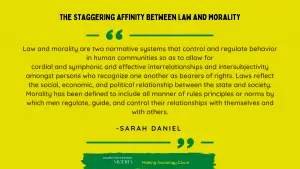John Boyega, multi-award winning British Nigerian actor; Bukayo Saka, young, remarkable British-Nigerian football player; Dr. Oluyinka Olutoye, the world-renowned Nigerian-American fetal and pediatric surgeon who operated on a baby-in-utero; Wendy A. Okolo, the Nigerian-American NASA engineer who was the first Black woman to obtain a Ph.D. in aerospace engineering from the University of Texas at Arlington; Pearlena Igbokwe, the Nigerian-American Chairman of Universal Studio Group; the list goes on and on. Whether in sports, business, STEM fields, film, music, fashion – you name it – Nigerians in the diaspora are a force to be reckoned with all over the globe.

Time and time again, we prove that “Naija no dey carry last” is not a mere saying, but a code of conduct, a way of life. The Nigerian Excellence isn’t just something we say or imagine; we actually have the numbers to back it up.
A 2020 CNN report showed that 59% of Nigerians aged 25 or more in the US held at least a Bachelor’s degree, compared to the 33% stat for Americans born in the US, making Nigerians the most educated people group in the country – yes, even more than Asians. The same report stated that 54% of Nigerian immigrants worked white-collar jobs, while a 2015 report by The Migration Policy Institute stated that 29% of Nigerian Americans held postgraduate degrees, compared to just 39% and 11%, respectively, of US-born nationals.
I remember how it was regarded as a big deal when I mentioned to my non-Nigerian friends in Dubai that I would definitely be pursuing a Master’s degree. I was surprised by the reactions because, until that point, I had just considered it the “normal” thing to do. When you’re done with your Bachelor’s degree, the next natural step is your Master’s. It’s not even something that’s given thought. My only consideration was whether to go for it immediately after my Bachelor’s or work for a few years and then do it.
Moreso, getting a Master’s degree is a big “Japa” route for many Nigerians now more than ever. When I was younger, it was more common for people to study for their Master’s abroad and come back to Nigeria. But now, once the study visa for the Master’s is obtained, the beloved “Welcome to a new dispensation” meme surfaces on the Twitter timeline. By the way, who made that the Japa Coat of Arms?

Also, these days, there’s hardly any American TV show I watch that doesn’t have a Nigerian (even if by descent) actor in it. We’re everywhere. Watching Nigerians achieve remarkable feats abroad really does make my head swell with pride. I read or watch the news of yet another Nigerian trailblazer and I feel like they could easily be my sister, brother, parent, or family friend. I immediately feel like there are a million and one shared experiences between us, bringing a peculiar sense of endearment. Sometimes though, I find myself seriously pondering on what element in the Nigerian recipe particularly makes us so prone to success.
After all my mental discourse with myself, I think it boils down to these elements:
Some of Us Eventually Grew Two Heads.
If you’re Nigerian, there is a 90% chance your parents have uttered the words “does she (or he) have two heads?” when you brought home your report card and didn’t land 1st position or straight A’s. Even if you were the child who had two heads and landed the 1st position, there’s a good chance your parents asked why you didn’t get all 100s in your assessments. There is a weight of expectation many Nigerian parents drop on their children from a very young age. Mediocrity is simply not an option, and we must surpass our parents’ successes.
While I do believe they don’t always express their expectations in the healthiest of ways, I find it hard to deny that setting such a standard of excellence from the onset does help. Could there be a balance? Most definitely, but the premise stands. We are often told to go above and beyond in academics, which inadvertently influences how we take on the world – with our two heads held high and proud.
“Who suffering epp?”. Us, apparently…
If something thrives in a toxic environment, it will most likely soar in a better environment. Factors like Nigeria’s painfully poor economic conditions, corruption, and so on are often suffocating, but somehow, we find a way to make it work. When we travel to developed countries that have working systems, we find that those major hindrances are gone, so we can do much more.
For example, think about all of what Nigerian medical professionals have to endure in the country: incessant power cuts which often force them to operate in the theatre blind, outdated technology, etc. Getting to countries where they have uninterrupted power supply and the most sophisticated of technology are present opens another world of possibility. Nigerians in Nigeria have had to be innovative, think on their feet, and make hay even when there is no sunshine. Thereby imbibing skills that would likely not be gained from comfort. Where most people may see impossibility, Nigerians have been trained to see opportunity.
“No condition is permanent”
In 2011, we were crowned the most optimistic country in the world for the second year in a row. At the surface level, that kind of optimism doesn’t make any sense, considering all the many woes we face as a nation. But taking a deeper look, it’s clear that our culture is one that focuses on the nearly invisible silver lining, arguably mostly because of the pervasiveness of religion.
There is such a thing as the Nigerian Hope. It’s what keeps us going – the (often irrational) belief that better days are coming, even if things have progressively gotten worse. That sort of in-built optimism is an immensely powerful fuel in systems that do work.
The Crème de la Crème
Foreign countries aren’t giving visas to just anyone; points-based systems are used to determine who gets to come into their countries on resident visas. These countries are picking the most qualified and those who show proof of ample funds to sustain lifestyles there. There’s a reason the mass migration is called the ‘brain drain’. Therefore, the Nigerian immigrant populations in those countries are highly concentrated with the best of us. And high-achieving parents will only encourage their children to build on what they’ve already established for themselves.
We can only hope that someday, the “Nigerian Excellence” will play out on a national level. Or perhaps, we can do more than hope. Hope has only taken us so far.
Sources: Financial Times, BBC.







